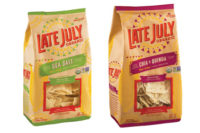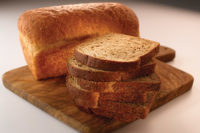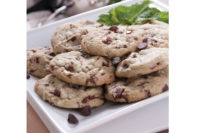There is a lot of health news right now in the snack food and bakery industries. With the Food and Drug Administration (FDA) issuing its long-expected draft regulation to practically eliminating trans-fat in food to its draft guidance to help growers, manufacturers and foodservice operators take steps to reduce levels of acrylamide in certain foods and so many other health issues, we find this month that our pages are filled with health issues.
One example is in our Ingredient Technology feature on fats and oils, a subject abuzz with hot issues today. Trans-fats have long been criticized by nutritionists, and the state of New York and other local governments have banned them. They are generally considered the worst kind of fats for the body’s heart—even worse than saturated fats, which can also contribute to heart disease. The FDA’s 60-day comment period on this preliminary determination to collect additional data has been applauded by medical professionals, who say it’s a good step toward eliminating the remaining amount of trans-fats that continue to pose heart diseases risks for many people. We uncover new formulations that are designed to be easy to use and taste good, but have better-for-you benefits. We also find the challenges involved in producing baked goods and snacks with different oils and fats.
Our website (www.snackandbakery.com) is filled with all sorts of relevant articles, from items about better-for-you products to the topics mentioned above to what’s happening in saturated fats and food safety to how the International Dehydrated Foods company is moving into health and wellness applications.
Also in our print issue, Sylvia Klinger, our Ethnic Influence columnist this month, asks bakers to try to improve the health of Hispanics and quickly. According to the Centers for Disease Control and Prevention (CDC), Latinos of all ages have among the highest obesity rates in the U.S. Thus, they often experience one of the most severe consequences of obesity: Type 2 diabetes.
And there is so much research going pertaining to the health effects of fiber and grains. In her master’s degree thesis research at Kansas State University, our Future Foodie columnist, Elyse Buckley, is finding that certain fibers and resistant starches have health benefits similar to dietary fiber consumption: Colon cancer prevention; cholesterol reduction; and blood glucose attenuation.

Research firm Mintel has custom research that finds that among those who eat healthy snacks, the average number of snacks consumed in a given day is 2.55, of which 1.81 are considered healthy snacks. This means that 78% of daily snacks are nutritious choices, which are balanced by a smaller share of indulgent or “junk” food snacks each day. The firm also reports that 65% of respondents to another snack survey indicated they wanted healthy snacks. While nearly two-thirds of respondents often snack between meals, only 27% report usually only snacking on healthy foods. Although this is a small share of highly committed healthy snackers, the incidence for occasional healthy snack consumption is growing and widespread.
Take a look at our Heart Healthy article, which discusses several aspects of cardiovascular disease, the statistics and research done, as well as the role breads and higher fiber foods play in battling high blood pressure, cholesterol and triglyceride levels.
On another front, contributor Melissa Kvidahl, who delves into the sustainability topic, considers that consumers of bakery products and snack foods are ready for “greener pastures” in sustainability as greener characteristics drive a large amount of product switching. What’s good about sustainable practices is that they can often lower bakers’ and snack manufacturers’ internal costs. But are these food producers heeding the call to meet this demand?
So while the holidays are upon us and we might be indulging in baked goods and snacks that are the exact opposite of what I’m discussing here, we urge you to sit back and peruse away, as you enjoy a healthy (we hope) baked treat or snack.






